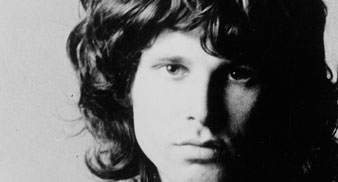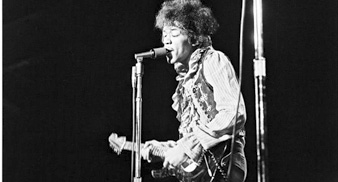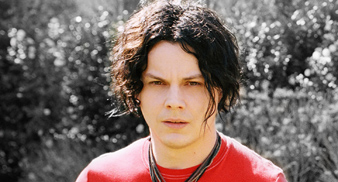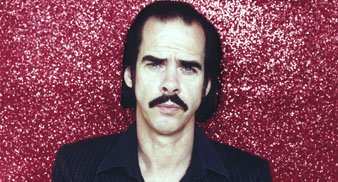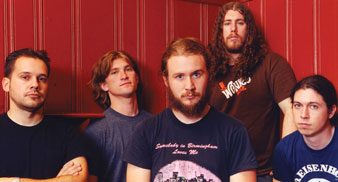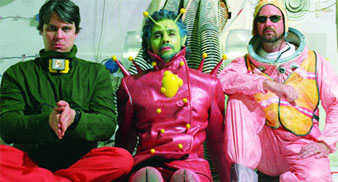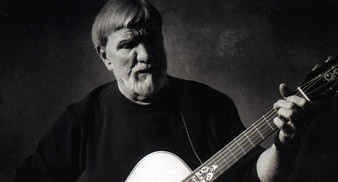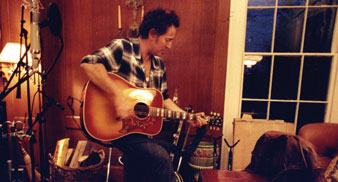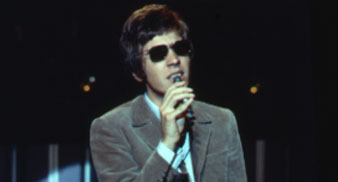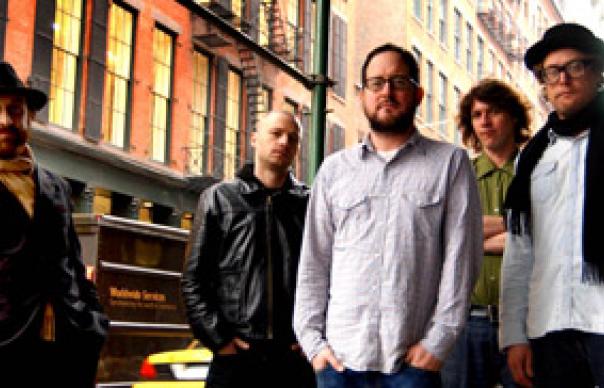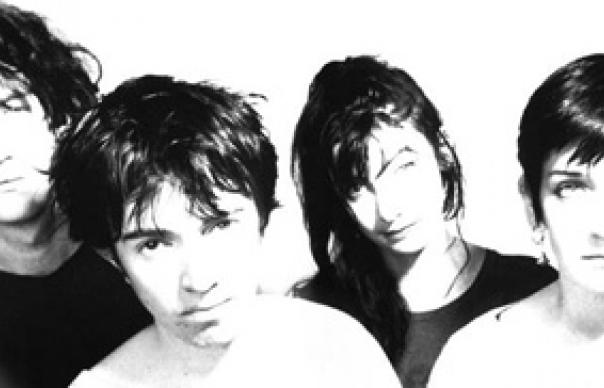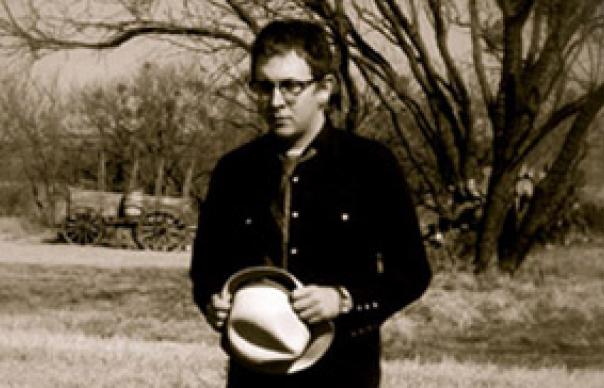If it was their intention with this record to, among other things, leave the listener speechless, they’ve done a good job.
I’ve been listening to it virtually non-stop for the last few weeks, and I’m still trying to find the right words to describe Stay Positive, the astonishing fourth album by The Hold Steady – the vaulting ambition of which combines aspects of the dramatic euphoria and anxious nostalgia of Who’s Next and Quadrophenia and the maggoty grandeur of Lou Reed’s Berlin, alongside the scalding musical dynamics of The Attractions and familiar loud echoes of the E Street Band, especially in the hurtling, incident-packed velocity of most tracks, which, overall, are bigger, more soaringly anthemic than ever, Tad Kubler’s monster guitar parts everywhere to the fore, the sound of something waiting, somewhat impatiently, to fill stadiums.
I was initially, you know, nonplussed by Craig Finn’s description of Stay Positive as an album about growing old gracefully and the apparently awkward circumstance of being in a band in your late thirties, written largely on the road.
This made it sound like it might be ruminative, leaning towards morose introspection, interested only in itself, emotionally myopic.
This would have been a perhaps not entirely welcome departure from the kind of songs – lurid, unflinching snapshots of drug-addled teenage losers, usually featuring key characters Holly, Gideon and Charlemagne – with which, over the course of The Hold Steady’s first three albums, Finn had established himself as a laureate of the dark American night and the people who move through it, restless, ruined and usually lost.
What Craig said about Stay Positive made more sense, however, when I watched the John Cassavetes film, Opening Night, cited by him as an influence. The movie stars Gina Rowlands as an actress, much idolised by her fans, terrified by the fading of her beauty, lamenting the passing of her youth and bygone talent, and the time in which it flourished (“There’s no humour anymore and all the glamour’s dead,” she complains, a line that works it way into a song here about disillusioned sex called “Navy Sheets”). She’s further distressed by the death of a besotted fan – who’s clearly mistaken the actress for the roles she’s famously played – to which she’s an accidental witness, and is subsequently haunted by, increasing her sense of crisis.
Stay Positive, similarly, is preoccupied with growing old – or, at least, older – and how we cope with the unravelling of what our lives may at one moment have promised us, ideals turning to dust and disenchantment, all that noisy youthful vim gone, eventually, to nothing.
The album, also like the Cassavetes film, is overshadowed by death – here the murders of two boys, crucified one summer, elliptically recalled, the killings revisited on several songs, from shifting perspectives in a prismatic narrative reminiscent of some top-notch TV crime drama like The Wire, full of concealed meanings and uncertain significance, whatever’s happening at any given point revealed fragmentally.
The album opens with the rhapsodic “Constructive Summer”, which sounds like Husker Du taking The Who’s “Baba O’Reilly” into ecstatic overdrive and appropriately placing the action that follows in the “teenage wasteland” of Pete Townshend’s troubled reverie.
The song roaringly describes the last summer spent together by a group of high school friends – among them, you’re likely to think, but unnamed, Holly, Gideon and Charlemagne – in some glum mid-western mill town. There, beginning to drift after serial disappointments to the disenchanted edge of things, their circumscribed lives are illuminated, made incandescent, by rock’n’roll – “Raise a toast to St Joe Strummer/I think he may have been our only decent teacher” – which is all they have to truly believe in, a rowdy salvation.
Even at its most rousing, however, there’s an anticipation here of grim things to come, regret at what they will soon leave behind, soon to be forgotten.
“Growing older,” Finn sings with sad desperation over a wild tumult of guitars and keyboards, “makes it harder to remember.”
A brilliant example of the kind of music – powerful and absolute – that it describes, “Constructive Summer” acts as a kind of preface, overture or, better still, the pre-credit sequence of a movie you know you aren’t going to be able to take your eyes off until the final credits fade and even then won’t be able to get out of your head for a long time after.
We are then plunged headlong into an unfolding nightmare. The insanely catchy, horn-driven “Sequestered In Memphis”, with keyboard flourishes reminiscent of “Oliver’s Army” or “King Horse”, is a song about a police interrogation – someone, we don’t know who, hauled in by the cops for questioning about something’s that’s happened, we’re not told what, the chorus his version of picking up a girl and the sex that followed, a harshly descriptive but inconclusive narrative that leaves us
wondering what’s actually happened and where this might all be leading.
“One For The Cutters”, nasty and noir-ish, underpinned by spectral harpsichord, brings us closer to the singular event, the murders of the two boys mentioned earlier, in which the song’s central character, a thrill-seeking college girl – Holly, perhaps – is an aroused and fascinated accomplice.
Finn returns repeatedly to the murders – most dramatically on the album’s centre piece, the hallucinatory “Both Crosses”, Holly’s dank visions of carnage set to an unsettling pulmonary beat, quite unlike anything they’ve previously done – in songs that refer not only to each other, but also to songs on previous albums, key lyrics teasingly appropriated from earlier tracks, dropped into Stay Positive’s narrative mosaic like clues to a larger puzzle.
And so, Holly’s errant descent into drugs, careless sex and life on the groupie fringes of rock’n’roll, is recalled from the points of view of friends, abusive lovers and, on the epic country-tinged ballad, “Lord, I’m Discouraged”, a helplessly smitten witness to her self-destruction, whose final imploration is among the saddest things I’ve ever heard in a song, Kubler’s heroic guitar here a torrent of undiminished pain.
In a parallel text, the anonymous narrator of “Constructive Summer” – who could also be the boy in “Party Pit”, who quits the local scene to form a band and may be a version of Finn himself – struggles in the face of largely sordid realities and festering self-doubt, vividly described on flat-out carnal rockers like “Navy Sheets”, “Yeah Sapphire” and “Magazines”, to keep alive his youthful belief in rock music as something transcendent, something that’s given loudest voice on the brilliant title track, lyrically a fierce mix of regret and rekindled promise.
The worlds of these two characters finally coalesce on the album’s closing couple of tracks – the jerkily elegiac “Joke About Jamaica”, with its running references to Led Zeppelin songs, a grandiloquent grand piano bridge redolent of Costello’s “Clubland” and Tad’s most outrageous guitar solo, and the stirring closer, “Slapped Actress”, which exalts the communal relationship between performer and audience on those massive nights when the music is more than entertainment, and playing it not so much a job as a vocation, resplendent and unforgettable. Much, you’d have to say, like Stay Positive itself. Staggeringly good.
ALLAN JONES
CRAIG FINN Q&A
How soon after Boys And Girls In America did you start mapping out the songs for Stay Positive?
When we started this band, we wanted to be pretty aggressive as far as releasing albums went. So we’ve done four records in five years. To maintain that momentum, we realised around this time last year, when we over doing the festivals, Glastonbury and Latitude, whenever that was, that we’d have to get some work done on a new album before we got home. Anyway in that run of dates, we started putting rough demos together in our hotel rooms. And we got home in September or October and fleshed some of the songs out and took them on tour, played about eight of them on a tour with Art Brut that happened in November. And after that tour, we went in the studio and really made the final push. We ended up with 19 songs, which as you know became 11 for the record.
Did you have a notion from the start what the album would be about?
Yeah. I thought this record should maybe look at the characters I’d been writing about on the previous three albums as they got a bit older, more adult with more adult problems. One of the things the album is about is the idea of ageing gracefully. I’m 36 years old right now and making a living off rock’n’roll – and that made me think a lot about how people grow old and how at a certain age people have goals like maybe parenthood or home ownership or things like that. But you also want to stay true to some of the ideals you had when you were young. So the record jumped off a lot from those thoughts – it’s about keeping going, perseverance, how to stay true to the ideals and ideas you had when you were younger.
Would it be true to say you start from a preconceived idea for an album and write songs to fit the concept?
Yeah. That is true. However there is some part of it that strangely reveals itself to you as you go along – maybe if you’ve written eight songs, the next four might teach you a little bit about the first eight
The songs on the album aren’t just linked to each other but flash back to older songs from previous albums – “Stay Positive”, for instance, refers back to “Hornets! Hornets!” on Separation Sunday
Yeah. That’s something I’ve always done. I think of that almost as a treat to the heavy listener. It’s something that’s always in my mind, this over-arching idea of how I want to connect things.
Did you have a plan from the beginning, then, that the records you made would always be somehow linked, thematically or through the characters in the songs?
I think so, although I have to admit that when we first started we didn’t really think too much about a second record. But I think if you’d asked me the same question at the time, I would have said yes, although I wouldn’t have been sure that the ideas I had would ever actually be put in practise, whether we’d have a chance to do what I had in mind.
Listening to the new album back to back with the first three, it’s like watching a box set of The Wire or something – the narrative interconnections, the recurrence of key characters, the way scenes flashback and overlap…
That’s certainly the intention and I appreciate hearing that. The idea is hopefully that someone on their 50th listen will gets something they hadn’t caught before.
John Cassavetes’ Opening Night seems to have made quite an impression on you. “Slapped Actress” specifically references the movie, but the film’s themes seem to inform other aspects of Stay Positive – notions of growing old, art v entertainment, the authenticity of performance, the conflict between public persona and private person…
I’m not someone who’s emotionally moved by much film, but I got this Cassavetes box set and I was surprised by the impact his films had on me. With Opening Night, I was very drawn to this idea of the ageing actress. I mean, if you’re trading on your beauty, the ageing process is really your enemy. And Opening Night has that as a really tragic thing, her simply getting older.
I was also really taken by the scene where Cassavetes wants to slap Gena Rowlands, and he says, ‘If I don’t really slap you, it won’t look real for the performance.’ And she says ‘It’s a play, why would you have to actually slap me, that’s the whole point.’ That kinda connected with the way I think people are preoccupied with my relationship with the characters I write about. I’ve always said no one really cares whether Quentin Tarantino kills people or does karate but for a songwriter there’s this question of a perceived honesty, that your songs are the story of your life.
Your familiar protagonists, Holly, Gideon and Charlemagne aren’t mentioned by name on the album. Why the anonymity?
They are not. Except on a track that will be on the vinyl version, ‘Ask Her For Aderall’. We left it off the CD because it just didn’t fit where we wanted it to. Every time you make a record, you have those heartbreaking decisions to make. The fans really liked it when we played it live, so I think we’ve probably surprised a lot of people by leaving it off. But people will be able to get their hands on it. I don’t name them on the other songs because I wanted to make the waters a little murkier.
The characters on Stay Positive go through a lot of grim times, but what continually pulls them through is rock’n’roll.
Well, my heroes are people like Joe Strummer and Bruce Springsteen. People who make you feel anything’s possible, that rock music, for instance, can be real big and important. You can’t put words on what it’s like to see Springsteen in concert – it’s so huge, so big. Do I believe in the redemptive power of rock’n’roll? Absolutely. At its peak, played with the best intentions, it can be transcendent.


